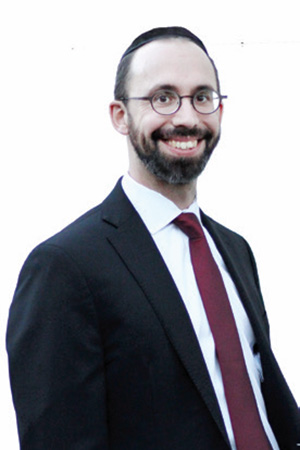
This dvar Torah is dedicated l’iluy nishmas my grandfather, Mr. Sidney Blechner, Shalom ben Mordechai, z”l, upon his 10th yahrtzeit on 11 Sivan.
Whether we admit it or not, we all have a tendency to be self-absorbed. Not the best trait to have, most certainly. But Hashem did give us a basic tool to learn to be “other-focused”: our eyes. As soon as we open our eyes, we are looking outside ourselves, taking in our surroundings and all the people around us. Opening our eyes to the outside is a first, albeit small, step toward developing sensitivity toward other people.
Our parsha gives us a fascinating example of looking beyond ourselves. We are introduced to the “complainers”—the description applied by the Torah to those who were always finding something to gripe about in the desert. One of their complaints was about the taste of the mann. “We remember the food we had in Mitzrayim—the fish, cucumbers, melons, leeks, onions and garlic,” they said. (Beha’aloscha 11:5) The Sages tell us the mann tasted like whatever food they wanted and took on the actual characteristics of that food. If so, what were they whining about?
Rashi explains Hashem did not let the mann taste like the above foods since those foods are not healthy for nursing and pregnant women.
This explanation leads to a further question. If these foods were bad for a small group of people, why was everyone denied them? I believe the Torah is teaching us an important lesson in the need to be sensitive to people’s feelings. How would these nursing and pregnant women feel if everyone was eating deliciously spiced foods with onion and garlic while they could not? To spare their feelings, Hashem ensured the mann could not taste like these foods for anyone.
The complainers were not happy. They were too self-absorbed to be sensitive to the feelings of others.
Fortunately, not everyone is a complainer. Some are sources of inspiration, as we see in the following true story: Mr. Goldstein’s wife passed away, and his son Dovid and his wife invited his father to come live with them so they could tend to his needs. Dovid was preparing food for supper for the family and recalled as a young child how his mother used to make noodles three times a week for supper. The son asked his father, “Dad. I’m making food for the kids for supper. Would you like me to make your favorite elbow macaroni?” Mr Goldstein replied, “No, thank you. I really don’t care for noodles.”
Dovid was puzzled; he thought his father loved macaroni. “To be honest,” said his father, “it’s very difficult for me to eat noodles. I was forced to eat them in Japan during the war and learned to hate them.” Dovid continued to be puzzled. “So, why did Mom make them so often when you had such an aversion to them?” he asked. His father replied, “Your mother wasn’t aware that I didn’t like noodles. She was working during the day and taking college classes a few nights a week, in addition to caring for the family. She used to come home exhausted and the easiest supper for her to make was noodles.” “So, you ate noodles you hated three times a week because it was easier for Mom?” asked Dovid. “Yes,” said his father. “That was the right thing to do.”
The Ksav Sofer comments that there was huge tension in the complainers’ homes. They would argue with their wives that supper tasted “too bland” and it was their fault they couldn’t enjoy the onion and garlic they longed for. Their eyes were looking down at their own stomachs, and not outwardly to the needs and feelings of others.
It’s quite easy to be self-absorbed, which makes it so important that we make the effort to open our eyes and look all around us to be sensitive to the genuine needs of others. Mr. Goldstein saw his wife’s tiredness and made her rest and comfort a priority over his own needs. May Hashem bless us with continued sensitivity and care for others, and with the happy and harmonious marriages and homes that result.
By Rabbi Baruch Bodenheim
Rabbi Baruch Bodenheim is the associate rosh yeshiva of Passaic Torah Institute (PTI)/Yeshiva Ner Boruch. He initiated and continues to lead a full multi-level gemara learning program, gives halacha and hashkafah shiurim on Shabbat and, offers a weekly Beit Medrash program with in-depth chavruta learning in both Livingston and Springfield.










